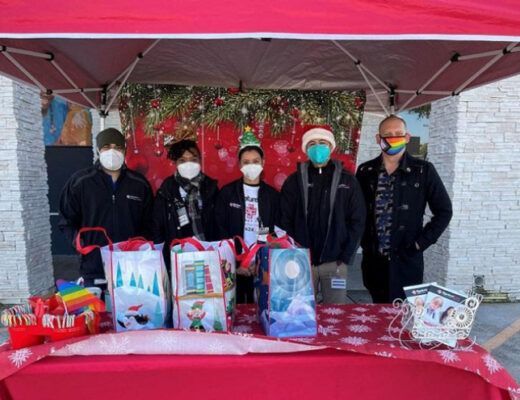By Sasha Lamprea
I’m always having to explain myself. I’m Colombian. Colombian as in coffee, vallenatos, and magical realism. I’m black. Black as in oppression, drum-heavy beats, and tight curls. I’m queer. Queer as in rebellion and unintentionally radical love. And I’m southern. Southern as in barbecues, sweet tea, and big, open skies. These days it comes naturally to say I’m a queer, Afro-Latina, Colombian immigrant living the Texas experience. But the truth is, it hasn’t always been easy to find these words, let alone to speak them out loud. I was born in Colombia and spent much of my childhood in Cartagena, a city on the Caribbean coast that is as diverse and colorful as it is old-fashioned and full of secrets.
Growing up, I was taught to claim that I was morena clara, (“light skinned”) and to be offended if anyone ever called me black. I was taught to try my best to contain my hair, to keep it in tight braids and buns that hurt my head but successfully disguised its kinky, unruly nature and kept people from telling me I had pelo malo, or as my great grandmother called it, pelo maldito (“cursed hair”). I was actively taught—whether intentionally or not—to deny my blackness and to keep it as secret as an affair. Which, in many ways, it was. I grew up denying left and right that each time I heard drums my hips developed a mind of their own and began moving in rhythmic undulating patterns that soothed my soul and felt like an ancestral embrace. I grew up denying that my favorite “hairstyle” was right after going to the beach, when my hair was wild, wet, tangled, and growing bigger and bigger as it dried. I grew up claiming that my favorite Spice Girl was Ginger Spice, when in reality, I couldn’t tear my eyes away from Scary. Whether that was because I wanted to be her, or because I longed to be with her—who’s to know.
I was eight years old when we migrated to the United States in 2000. New millennium, new home, I suppose. My parents and I first lived in California for a minute, then in Florida for about three years, then in Boston during seventh grade, before finally settling where I threw down my second set of heavy roots—Texas. (In case you’re wondering, the first set remains in Colombia). Eighth grade brought with it some brand new challenges: the persistence of boys, the misconception that Latina is synonymous with Mexican, the ever-tempting curiosity about girls, the increasing pressure to define if I was black or Latina, and the often-confusing feeling that I had finally found somewhere that felt a little like Colombia; somewhere that felt like home. It is here—deep in the heart of Texas—that I was finally able to lay the foundation on which I’ve built myself.
Time began to pass and I found myself going to Thursday night youth group because—even though I was never religious—they gave hayrides and I got to sit close to my friends and bump around in trucks. Time passed and I found myself in high school, wearing homecoming mums and feeling jealous of my best friend’s boyfriends, because she was just too good for them. Time passed and I was dancing salsa y merengue in the living room and screaming along to My Chemical Romance in my bedroom. Time passed and I was dating my friend’s ex-boyfriend, but touching her in dark rooms. Time passed and I found myself realizing—painfully, heavily, slowly—that this life of mine, is not meant to be lived in black and white.
Instead, I discovered my life could be a beautiful melting pot of identity. I found myself realizing that I was neither Black nor Latina, but both; that although I am an immigrant, I’m also a southerner, and I don’t have to ground my heart in just one place; and that—although I always dated guys—I was not closed off to a girl changing my world, and was able to embrace my long-neglected queer identity.
My queer identity came to me like the sweetest, most luxurious bubble bath or a thick, heavy lathering of coconut oil body butter. It washed over me gently, while whispering reassurances that this newfound queerness was, in fact, the piece I’d been missing—the piece that would make me whole. It brought me to completion—to the place I stand now, saying I am black. I am queer. I am Latina. I am southern. I am an unapologetic, resilient queer, afro-Latina immigrant living this sweet, southern life.







